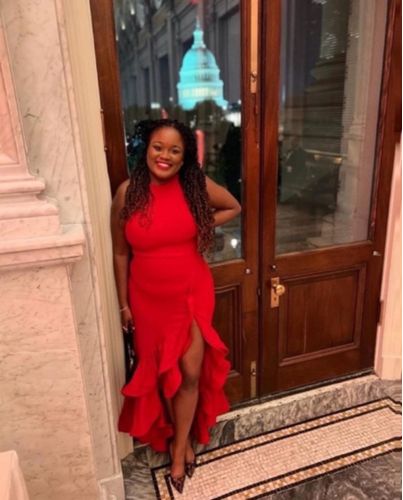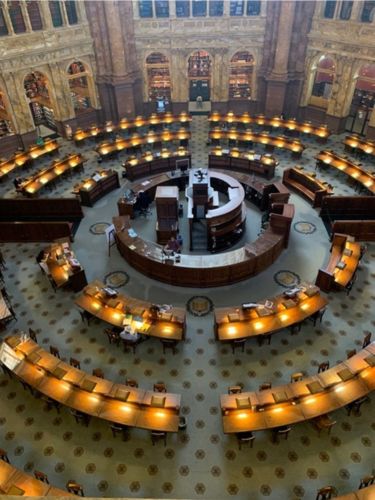Exploring the Archives: My Semester as a researcher at the John W. Kluge Center at the Library of Congress
Chantal Victoria Bright, PhD Candidate, Geography (Human), School of Environment, Education and Development (SEED).

There’s nothing more exciting for a self-described bibliophile like myself than having the opportunity to conduct research at The Library of Congress (LoC). The Library of Congress is the United States’ oldest federal cultural institution which also serves as the research arm of the United States Congress. With the John Rylands Research Institute's financial support, I was awarded the opportunity to conduct archival research for one semester as a John W. Kluge Center Scholar as part of my PhD research.
My study examines the gender-water-peace nexus in conflict-affected Liberia. Liberia is recognised as Africa’s oldest Republic, but the country’s founding is rooted in American history. The West African nation of Liberia was part of an American effort under the auspices of the American Colonization Society to “repatriate” formerly enslaved people and freeborn Black people beginning in 1821. The American Colonization Society was a private company made up of a strange alliance of enslavers and abolitionists with the single mission of solving “the problem” of the growing free Black population during a time when slavery was a significant part the U.S. economy. My research is interdisciplinary; therefore, the resources I needed could be found in three different LoC Reading Rooms. Thus, my time was divided between all three reading rooms like clockwork. Most African resources need to be digitised, requiring hand-searching boxes of materials. One crucial collection from the 18th century was only available on microfilm. The most important task I needed to complete at LoC was to find the list of African American women who embarked on the American Colonization Society's first voyage to modern-day Liberia. This information differed from the digitised resources, and I had little hope that this could be discovered by the end of the semester. However, with the help of my LoC-assigned intern, I was able to source this.

The Library of Congress has three distinct buildings interconnected by underground tunnels. The Kluge Center is between the Supreme Court and the U.S. Congress building in the Jefferson Building. As a Kluge Scholar, I was part of a highly selective cohort of academics worldwide. The cohort was culturally and academically diverse and at various stages of their academic careers. Therefore, I greatly benefited from the network and even forged a close friendship with a fellow University of Pennsylvania alumnus. As you can imagine, I experienced some of the most exciting historical moments as a Kluge scholar, including attending the coveted Kluge Prize Award Ceremony in which Professor George Chauncey was recognised for substantial contributions to the field of LGBTQ history and analysis of complex sexual cultures of Black, immigrant, and white working-class and middle-class neighbourhoods. The Kluge Center was just a short distance from the Great Hall of the Jefferson Building, where megastar Lizzo played a 200-year-old crystal flute gifted to former American president James Madison. Also, during my time at the Kluge Center, the celebration of the Investiture of Justice Ketanji Brown Jackson as the first Black woman to serve as Associate Justice of the United States Supreme Court took place. These moments were phenomenal as a Black woman of Liberian heritage, American-born and British citizen.
